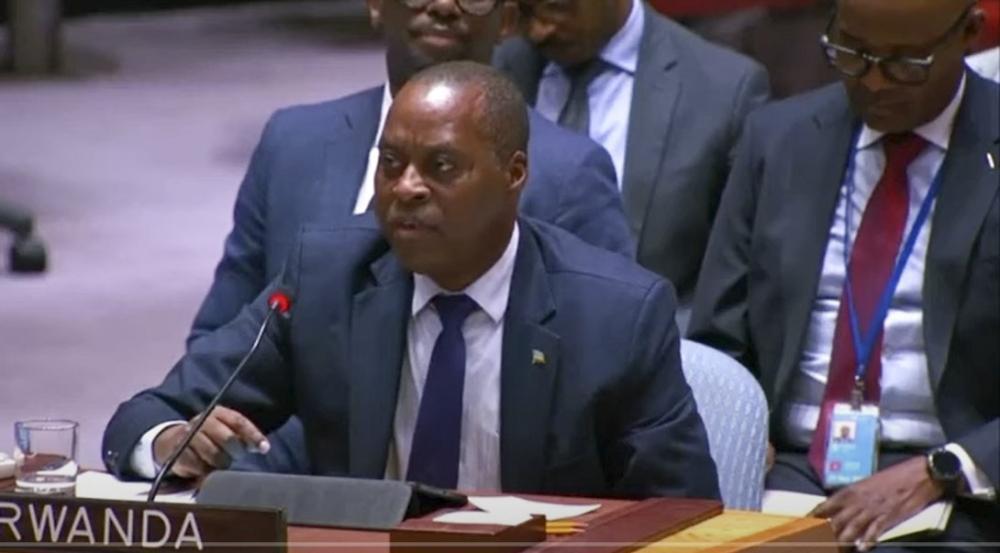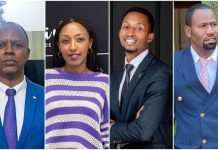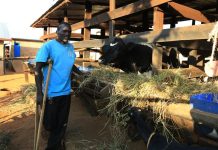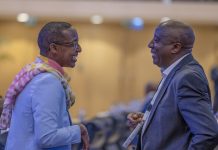Africa-Press – Rwanda. Just 48 hours after the UN Security Council discussed the importance of supporting regional initiatives and the mechanisms designed to foster peace in eastern DR Congo, and the great lakes region, the Government of Rwanda, once again, stressed the need to focus on the root causes of the problem.
At a United Nations Security Council briefing on the DR Congo situation, on February 21, Amb. Ernest Rwamucyo, Rwanda’s Permanent Representative to the UN, reiterated that, for Rwanda, “we believe any Council product on this matter should answer one simple question. How did we end up here?”
He added: “Did the international community not see the signs that could lead to this situation? More importantly, is the Council answering the big question of how we ended up here in order to find a solution that addresses the root causes of the conflict? These are the fundamentals we should be addressing to solve this conflict at its roots.”
The Security Council on Friday reiterated its appeal for all parties to conclude an immediate and unconditional ceasefire, as called for by leaders from East and Southern Africa. They also strongly urged DR Congo and Rwanda “to return without preconditions to diplomatic talks as a matter of urgency to achieve a lasting and peaceful resolution of the protracted conflict in the region.”
Rwamucyo thanked Security Council members who reached out to Rwanda “to hear our views,” and commended “those who even met with us to listen” and also highlighted Kigali’s deep concern regarding the unprecedented intimidation of African voices within the Council, particularly targeting A3 members – Algeria, Sierra Leone, Somalia, and Guyana.
“We condemn this behaviour in the strongest terms,” he said, stressing that this speaks volumes about DR Congo and its belief that the solution to its inter-Congolese conflict will come from actors from outside the continent.
Rwanda acknowledges, he reiterated, fully commends and is committed to the efforts of the AU, East African Community (EAC) and the Southern African Development Community (SADC). Since the Security Council meeting on Wednesday, February 19, on Friday, EAC Chiefs of Defence met in Nairobi, Kenya, as a follow up on the outcome of the joint EAC-SADC Summit.
Later, on Monday, February 24, the joint Chiefs of Defence of both EAC and SADC are scheduled to meet and draw a joint roadmap in line with the recommendation of the joint summit that was held in Dar-Es-Salaam. In this regard, Kigali is calling on the Security Council to “support these efforts and avoid being dragged into the risk of undermining regional efforts.”
‘Take Rwanda’s security concerns seriously’
Rwamucyo also stressed the need, and importance, of taking Rwanda’s security concerns seriously. Kigali has said it will maintain its defensive measures along the border with DR Congo as long as security threats from the Congolese army (FARDC) and its allies such as the genocidal militia, FDLR, exist.
FDLR is a DR Congo-based terrorist militia founded by remnants of the masterminds of the 1994 Genocide against the Tutsi in Rwanda.
He said: “We believe that any outcome that doesn’t take Rwanda’s security concerns seriously will not offer a sustainable solution to the conflict. The security challenges posed by FDLR and its splinter groups are of very serious concern for Rwanda.”
He said DR Congo must be held accountable for its continued preservation of FDLR, embedding it in its army, equipping it with sophisticated weapons and using it as an ally and fighting force.
“Any outcome that ignores the legitimate grievances of the Kinyarwanda-speaking Congolese which are at the root cause of the existence of M23 will also not help resolve the conflict.”
Rwanda is concerned by the focus on M23 and total silence on the humongous humanitarian violations committed across many parts of DR Congo, including the massacres, rapes and violations by CODECO, ADF, and other armed groups in Ituri, Beni, and South Kivu, the envoy said.
He recalled that the chaos on Kinshasa streets and the burning of embassies and foreign missions was also addressed in passing. The Council cannot be selective in its condemnation as the DR Congo conflict is complex, multifaceted, and the Council must address it comprehensively working with all partners and stakeholders involved, he said.
“Rwanda remains fully committed to the regional initiatives under the Luanda or Nairobi process and will continue to meet its part of the bargain playing a constructive role for the sake of sustainable peace, security and stability in our region.”
Rwamucyo called upon DR Congo to head the regional call, immediately return to the peace process, and commit to inclusive dialogue with state and non-state actors (armed or not armed), including M23, as outlined in the EAC-SADC recommendations endorsed by the AU summit.
For More News And Analysis About Rwanda Follow Africa-Press






